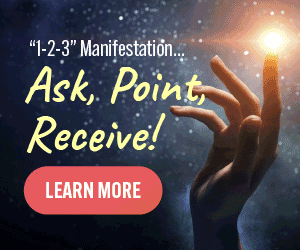Greetings. Will Mobley here, for the Institute for Empathy and Compassion. And happy to be providing some new information available to you and to the UCSD community but more to the community at large. We’re collaborating with the Center for Mindfulness to provide online resources, exercises that we will hope will help with anxiety, with stress, with loneliness. We think these exercises should benefit you.
We’d delighted to have you share them with other people. This online resource is free and available 24 hours a day really through recordings, as well as through live exercises. And I’m here together with Dr. Fadel Zeidan, who’s Assistant Professor of the Department of Anesthesiology and is Associate Director for the Center for Mindfulness, to provide us with an overview of the exercises and what we think that you will achieve by having engaged in them. So Fadel thank you for being with me and please say a little bit about yourself and then let’s talk about these exercises, and perhaps how they work at a brain level.

– Sure. Thank you so much Dr. Mobley. I’m delighted to be working with you and our growing team on how contemplative and self-regulatory practices can impact our wellbeing, our general health, especially in light of this ongoing pandemic, in this time of uncertainty that we’re all experiencing.
I’m a neuroscientist, a cognitive neuroscientist that uses multiple techniques and methodologies to better appreciate how practices like mindfulness meditation and compassion-based meditation impact our health but also how the brain and our basic physiology can inform these processes.
We’re really trying to understand how these practices impact our well being, if at all. And we’ve done some work where we were able to identify what brain regions that are associated with practicing meditation, how they reduce stress, and how they impact anxiety and depression.
And I’m going to be delighted to be presenting some preliminary data on how these practices inform the brain and behavior. Mindfulness meditation, as many of you may know is a practice where an individual focuses their attention on a body part, generally speaking, it’s the breath. And the individual is trained to focus on the changing sensations of their breathing.
And not if but when their mind gets distracted the individual is taught to acknowledge distracting thoughts, feelings, emotions for whatever they are, and to simply let them go without judging themselves and the distraction by bringing the attention back to the breath.
This is a practice that’s been… It’s quite remarkable, it’s over 4500 years old, and we are now only starting to see how profound these practices can be, and improving our well being in a self regulatory non-pharmaceutical fashion.
So we are listening to our community, to our campus and there is an overwhelming amount of anxiety and stress and even loneliness that we are experiencing in light of this Covid-19 pandemic and our current lockdown to deal with social isolation to stop this contagion. So, as a part of the primary missions and objectives of the Center for Mindfulness in the Institute for Empathy and Compassion, we’re particularly interested in how a variety of contemplative practices impact behavior and the neurophysiology that supports and mediates and facilitates improvements in wellbeing and health.
 And we have some overwhelming evidence demonstrating that mindfulness and compassion-based meditation can directly improve stress, anxiety and loneliness, even after just 20 minutes of practice. So, I’m going to share with you some slides that kind of provides some of this preliminary work, preliminary evidence of how these techniques improve wellbeing. This is work that we’ve published a while ago, almost 10 years ago that shows that just 20 minutes of meditation practice can significantly reduce perceived stress, tension, depression, confusion, make you less tired, as well as improve your total mood.
And we have some overwhelming evidence demonstrating that mindfulness and compassion-based meditation can directly improve stress, anxiety and loneliness, even after just 20 minutes of practice. So, I’m going to share with you some slides that kind of provides some of this preliminary work, preliminary evidence of how these techniques improve wellbeing. This is work that we’ve published a while ago, almost 10 years ago that shows that just 20 minutes of meditation practice can significantly reduce perceived stress, tension, depression, confusion, make you less tired, as well as improve your total mood.
120 minute meditation practice can on average reduce anxiety, state anxiety by 22%. This is a study we published in 2014, where we recruited 14 subjects and after just 120 minute practice, you could see the change. This is the percent change in state anxiety, you could see the change in state anxiety so you don’t need to be a monk to reap the benefits of these practices. And we also scan these people’s brains with a technique called Functional Magnetic Resonance Imaging.
This is where we could take a snapshot of individuals’ brain activation and deactivation.
And these are the first images of a meditating brain and we were the first to show how meditation reduces anxiety. So when someone is stressed out and or anxious, there’s an inability of a part of the brain that controls thoughts and emotions to work. So brain regions in the front, the prefrontal cortex over here, and the anterior cingulate cortex, they’re deactivated. And generally speaking, they’re deactivated because they reflect an inability to govern or control thoughts, worries, anxieties. Another brain region that’s highly activated during anxious anxiety and stress is this brain region called the posterior cingulate cortex.
And this is a brain region associated with mind wandering, self-referential thought processes, the thoughts in our heads.
What we found was just after a very brief meditation training, meditation significantly reduced anxiety and that anxiety relief was associated with greater activation in these exact brain regions. Higher activation in the anterior cingulate cortex and the prefrontal cortex predicted reductions in anxiety, and greater deactivation of this region, the posterior cingulate cortex also predicted reductions in anxiety. So we have, and there’s lots more evidence out there showing that meditation works in this way even if you’re not an expert in the techniques. So moving along, I’m gonna show you a slide demonstrating work from other groups that have explicitly looked at stress in folks who are unemployed, looking for a job, which may be similar to the situation we’re experiencing today here during this Covid-19 pandemic.
What we see is that the same brain region that I showed you, the anterior cingulate cortex, right here, greater connectivity here, with a brain region called the amygdala, which lives right here is associated with greater stress. The anterior cingulate cortex processes conflict and ongoing states.
And the amygdala is a super old brain region that’s associated with processing fear, negative emotions and emotions in general. And the greater the connectivity between the anterior cingulate cortex and the amygdala, the greater the stress. And this group led by David Cresswell at Carnegie Mellon found some findings that are synonymous with what we found as well.
And that mindfulness meditation reduces stress by de-coupling this connectivity. That the emotional centers of the brain start to reduce their activation, they become less hyperactive, and that’s generally controlled by these more prefrontal brain regions, kinda we call them the CEO of the brain. And this was directly facilitated by mindfulness meditation practice, when compared even to relaxation techniques. Further, the same group just published some work last year, that found that mindfulness meditation as well as compassion based practices can significantly reduce the feelings of loneliness. Even though they’re not around people, even though they’re not participating in group settings the practice itself helps lower feelings of loneliness and increases feelings and social connectedness.
So, what we’re finding out now more than ever is that simply self-regulating your feelings by just sitting for a few minutes a day can dramatically improve the way that you feel. And I’m proud to be a part of our respective centers where we’re now offering free guided practices to help us cope and deal with the ongoing pandemic. – Fadel, thank you very much. So what I’m hearing then, is that there isn’t, it isn’t just that there are thousands of years of experience, human experience. That that experience is now backed up by both subjective and objective measures of brain function, and that the exercises that do exist are really quite helpful.

– That’s exactly right Dr. Mobley. – Very encouraging and, and just to summarize a little bit more, you know, this is the kind of thinking that really led us to create the Institute for Empathy and Compassion. And it’s the kind of thinking that really forged this collaboration with the Center for Mindfulness. With the idea that, in general, we wanna help people deal with anxiety, stress, loneliness, especially now and that we can do this in two ways.
In one way, we can simply provide these exercises that we know help people. But also we can study them. And as we study them and their neuro biological basis, the goal is to really refine and tune these exercises, so they can become even more helpful.
And ultimately for us, to understand our emotional selves, how we relate to the world, and how it is that we can keep ourselves healthy, but also help those around us, our colleagues, our friends but even total strangers. So I’m really pleased that we’re working together on this and I really thank you for your insights.
– I’m delighted to be a part of this project and our ongoing projects as we try to best find self-regulatory ways to feel better. – And we’re working together also for the people listening to the video, we’re working now toward providing additional exercises and also for creating a study to really measure objectively as possible the impact of these exercises on your wellbeing. And so, we’d love to have your feedback, and we’d love to have you participate and what we hope to bring soon to the website is a chance to volunteer in a study of efficacy.
On that same website, we will list a couple of the videos that helped us introduce the institute, the new institute to the UCSD campus and we’d be delighted for you to share any of these with your colleagues, your friends, your family members. We want to serve you.
We want to serve those that you love, and you care for and who care for you, and we think this is one way to do that. So, thank you for listening. Thanks, Fadel for being here, and for being my colleague and please do take advantage of our online resources. Thank you very much.
https://olspsystem.com/join/1592425/b1
(PLR) Stop Overthinking https://warriorplus.com/o2/a/fv46n0j/0
Read More: The Miracle of Experience | Rupert Spira
Discover more from Marketing Revolution
Subscribe to get the latest posts sent to your email.
























